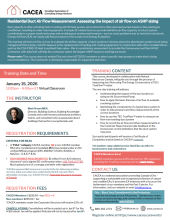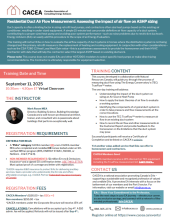High Performance Series: Introduction to High Performance Building Standards and Programs
Join Natasha Brooks from Building Efficiency Resources (BER), Brett Cass from the Canadian Home Builders’ Association (CHBA) and Michael Quast from the Passive House Canada for an informative webinar designed to help Energy Advisors better understand and communicate the differences between major high-performance building standards. This session will clarify the distinctions between CHBA Net Zero Homes, Passive House certification, and Phius standards, and show how these programs can complement one another rather than compete.









